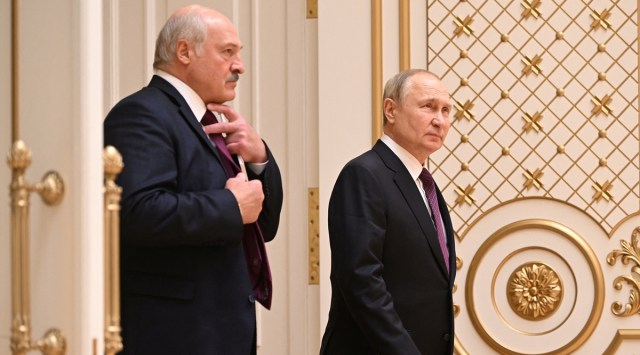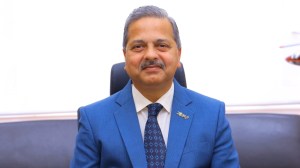President Vladimir Putin of Russia made a rare visit to Belarus on Monday to strengthen his bond with the country’s president and his closest regional ally, Alexander Lukashenko, a fellow strongman who has been under growing pressure from Moscow to provide more support for the war in Ukraine.
Appearing together at a palace in Minsk after their talks, Putin and Lukashenko spoke about the need to withstand Western economic pressure. Putin said the two had also discussed the formation of a “unified defense space,” without describing what that would entail, and had agreed to continue joint military exercises.
Putin’s visit took place as Russia continued its nighttime bombardment campaign against Ukraine’s power plants and other crucial infrastructure, deepening the country’s misery. And the trip seemed certain to escalate concerns in Kyiv about the possibility of a fresh ground offensive that could use Belarus as a launchpad.
 Russian President Vladimir Putin and Belarusian President Alexander Lukashenko attend the talks in Minsk, Belarus, Monday, Dec. 19, 2022. (Sputnik, Kremlin Pool Photo via AP)
Russian President Vladimir Putin and Belarusian President Alexander Lukashenko attend the talks in Minsk, Belarus, Monday, Dec. 19, 2022. (Sputnik, Kremlin Pool Photo via AP)
Ukraine has repeatedly warned in recent days that Russian forces could be preparing a new assault from Belarus aimed at trying once again to seize Kyiv, only about 55 miles from the Belarusian border, or at disrupting the flow of Western arms and aid into Ukraine from Poland.
As the talks began, Russia had just finished carrying out a wave of predawn attacks with Iranian-made drones on Kyiv and other Ukrainian cities, Ukrainian officials said, continuing a pattern of nighttime strikes that Moscow has adopted to try to evade Ukrainian air defenses.
Most of the exploding drones targeted power plants and other important infrastructure in Kyiv, where at least four loud explosions were heard. The city government issued warnings for residents to take shelter.
Kyiv’s mayor, Vitali Klitschko, said that critical infrastructure had been hit and that power and heat had been knocked out in some neighborhoods. In the region around the capital, three people were wounded and nine houses were damaged, the police said in a statement.
The Kremlin’s spokesperson, Dmitry Peskov, dismissed speculation that Belarus could become more directly involved in the war, telling reporters on Monday that such talk was based on “totally stupid, groundless fabrications.”
Peskov similarly dismissed warnings from the United States at the start of the year that Russia was planning to invade Ukraine, insisting that Moscow had sent troops to Belarus only for training exercises.
This article originally appeared in The New York Times.
































